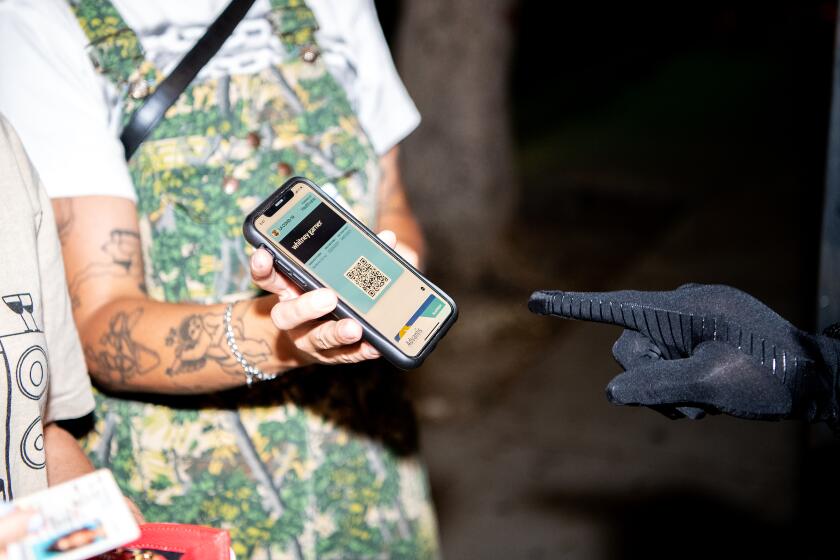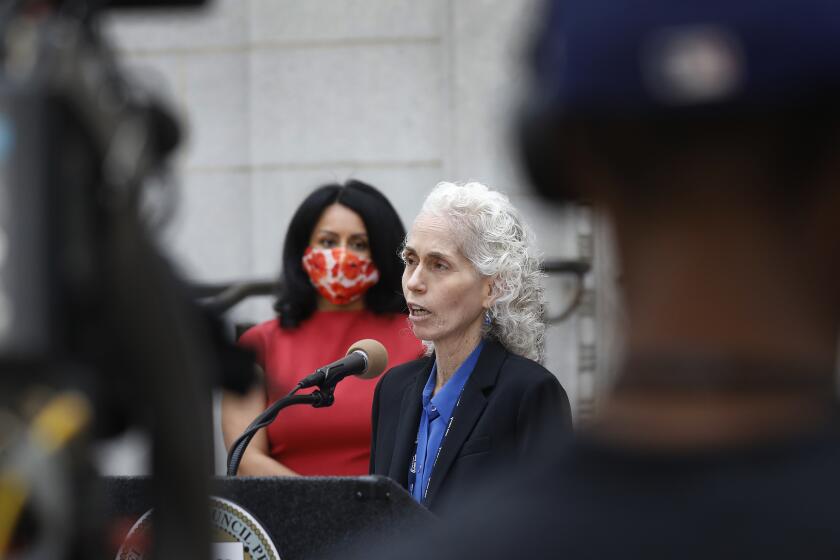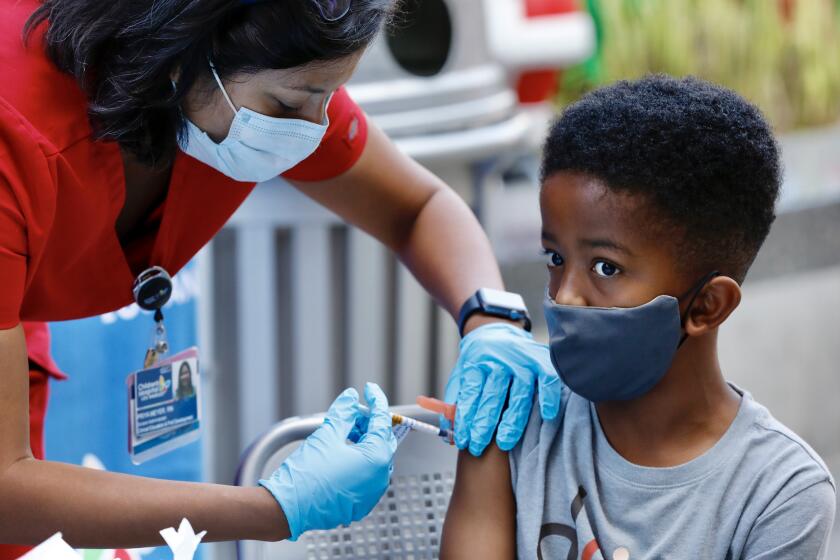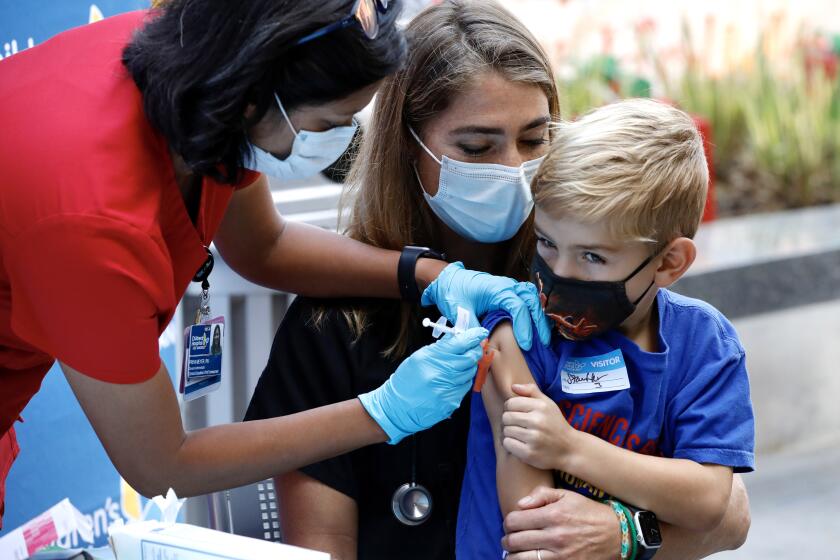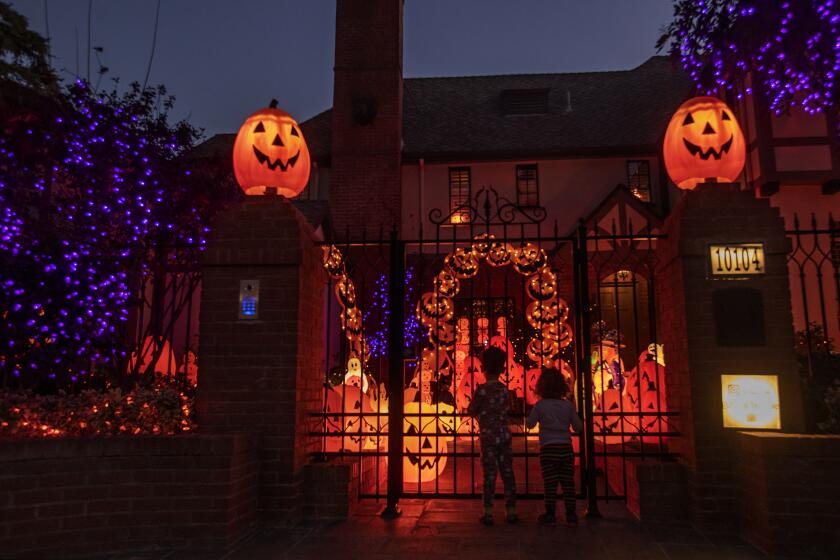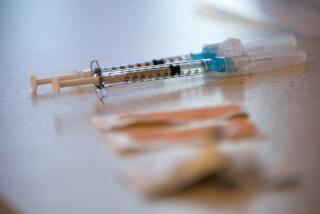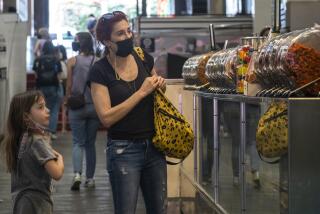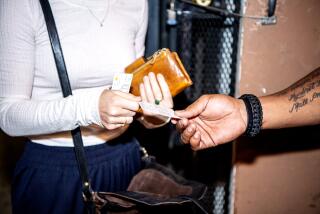L.A. won’t immediately ticket businesses that violate strict vaccine mandate rules
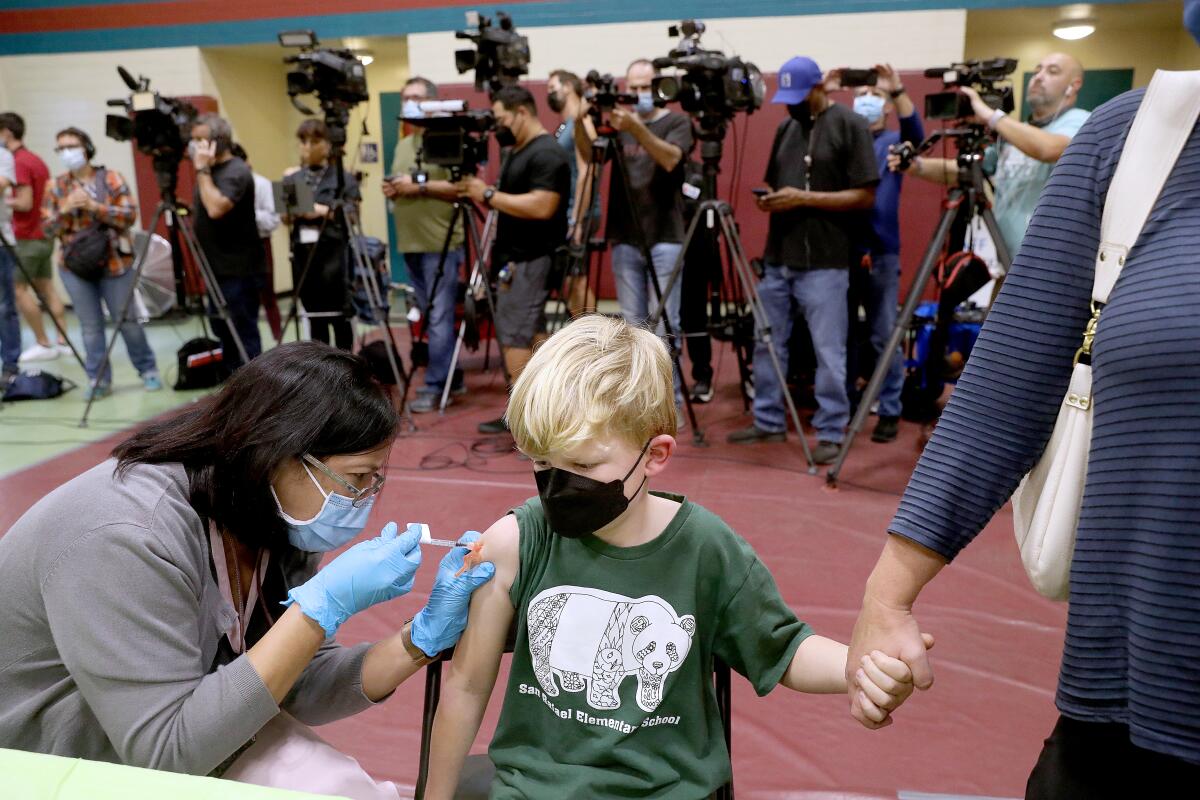
- Share via
Los Angeles city officials are set to implement some of the nation’s strictest COVID-19 vaccine verification rules next week, but they don’t plan to immediately cite or fine those who run afoul of the new regulations.
While crackdowns in the Bay Area against In-N-Out Burger generate national headlines, L.A. officials plan to start with educational and outreach efforts, rather than immediately penalize businesses when rules go into effect Monday.
For the record:
9:33 a.m. Nov. 8, 2021An earlier version of this article indicated that exemptions to the city’s vaccine rules for religion or medical reasons need to be submitted in writing. The requests can be made orally too.
That’s similar to the approach of officials in Los Angeles County as a whole. While both the county and city have rules requiring residents to show proof of vaccination to enter certain businesses, the county’s rules affect fewer types of establishments compared with those of the city.
Enforcement of the city program, dubbed SafePassLA, won’t officially begin until Nov. 29.
Starting that date, businesses or venues that flout the rules will face penalties — at first a warning, then an escalating series of fines starting at $1,000 and topping out at $5,000 for a fourth or subsequent violation.
“The intention of this isn’t to penalize businesses. Our businesses can’t afford another shutdown,” L.A. City Council President Nury Martinez said. “It’s to limit the transmission of the virus and save lives.”
L.A. businesses are set to enforce proof of vaccine requirement.
The city’s rules are expansive, requiring proof of full COVID-19 vaccination to enter indoor restaurants, shopping centers, movie theaters, hair and nail salons, coffee shops, gyms, museums, bowling alleys, performance venues and other spaces.
Attendees of outdoor events with 5,000 or more people also will have to show proof of vaccination or that they’ve recently tested negative for the coronavirus.
“There is broad support for this measure, and we are optimistic there will be compliance as the requirements take effect,” said Dan Halden, a spokesman for City Councilman Mitch O’Farrell, who was one of the council members who first proposed the indoor requirements.
L.A. County, on the other hand, has imposed vaccine verification requirements in only a few business sectors: indoor bars, wineries, breweries, distilleries, nightclubs and lounges.
Initially, patrons and employees in those spaces needed to show only they’d received at least one vaccine dose. But as of Thursday, they are required to demonstrate they are fully vaccinated.
The two most commonly administered vaccines, from Pfizer-BioNTech and Moderna, require two doses, given weeks apart. A third offering, from Johnson & Johnson, entails only one shot.
Visits to businesses by L.A. County health inspectors Oct. 8-10 were focused primarily on education rather than heavy-handed enforcement.
L.A. County’s verification requirement has been in place for nearly a month, but health officials said this week they have yet to cite any businesses for noncompliance.
That’s partly philosophical. County officials have regularly said they favor education over enforcement when implementing new coronavirus-related health measures.
Though it’s early, it appears many businesses are already toeing the line. From Oct. 16 to 22, county public health inspectors visited 78 bars and found 85% of them were following the requirement to verify customers’ vaccination status.
And preliminary findings from the weekend of Oct. 23 and 24 indicate that 90% of bars and 100% of visited lounges and nightclubs were in compliance.
“Perhaps because we were strategic with this rollout and we really went to a smaller group of businesses and establishments, I think we’ve had higher success and higher compliance,” L.A. County Public Health Director Barbara Ferrer said Tuesday. “We really have found very little sort of flagrant, ‘You know, I’m just not doing this,’ and much more sort of agreement that this is important and good attempts at getting it done.”
She acknowledged, though, that “doesn’t mean it’s perfect.”
The next chapter of the push to boost COVID-19 vaccinations rates started Wednesday, as children ages 5 to 11 began rolling up their sleeves — a long-awaited new phase of the inoculation campaign.
Some have worried that the disconnect between the city and county requirements will spark confusion among businesses and customers, potentially leading to unwitting violations.
County health officials confirmed this week they are not considering any changes to their rules.
While the city’s rules are broader, they also allow exemptions for religious or medical reasons. However, businesses must require those customers to use outdoor facilities or show evidence of a recent negative coronavirus test to come inside if no outdoor area is available.
According to the ordinance, patrons with no proof of vaccination or exemption can still briefly enter to use a restroom or collect a takeout order.
While the county’s ordinance specifically states it applies to patrons who are at least 12 years old, the city’s covers everyone who is eligible for a vaccine — which, as of this week, includes children ages 5 to 11.
Given that the first young Angelenos were able to roll up their sleeves only a day ago, it’s impossible for any of them to be considered fully vaccinated by the time the city requirements kick in Monday.
The city’s chief legislative analyst, Sharon Tso, said her office will put out a report — likely Friday or Monday — that, among other things, will address the issue of youngsters who became eligible for the vaccine after the city initially approved its ordinance.
California officials launched an ambitious rollout Wednesday of COVID-19 vaccinations for kids ages 5 to 11.
Throughout the pandemic, health officials have often described the need to take a layered approach to halting coronavirus transmission. While actions such as wearing masks in public, observing physical distancing and especially getting vaccinated all advance that cause, using them together increases the level of protection on both an individual and community basis.
Vaccine verification at businesses, health officials say, is another tool — especially heading into the pivotal winter holiday season.
“It’s a great opportunity to see family and friends and loved ones, and I hope that everyone has a chance to celebrate, but we want people to do that safely,” said Dr. Christina Ghaly, L.A. County’s director of health services.
It’s still too soon to say how, or whether, gatherings and activities over Halloween weekend may have shifted the pandemic’s trajectory. However, officials and experts were already somewhat wary that California’s post-Delta-wave progress has stalled.
California has stopped recording week-over-week declines in coronavirus cases and COVID-19 hospitalizations.
Over the last week, the state has reported an average of 5,589 new coronavirus cases per day, roughly a 4% increase from two weeks ago, according to data compiled by The Times.
And the number of people hospitalized with COVID-19 statewide on Wednesday — 3,914 — is up nearly 8% from two weeks ago.
L.A. County, the nation’s most populous, both reflects and shapes the statewide trend.
The county has reported a daily average of 1,115 new coronavirus cases over the last week, a 14% bump from 14 days ago, The Times’ data show. Hospitalizations have risen by about 9% over that same period and were at 650 on Wednesday.
Generally, health officials believe California is better prepared to weather another coronavirus resurgence because so many people have been vaccinated against COVID-19. Roughly 69% of Californians have already received at least one dose, and more than 62% are fully vaccinated.
However, winter’s arrival will usher in colder weather, increasingly pushing people to gather indoors, where the risk of coronavirus transmission is higher. Some experts also believe there’s a certain seasonality to the coronavirus that might make it easier to spread during colder months.
“My hope is that, while I’m prepared for us to see this increase and, certainly, all of our providers are prepared, we’re hoping at best it’s a small bump and nothing like we saw last winter,” Ferrer told reporters Thursday. “But that takes all of us to get there.”
Times staff writer Emily Alpert Reyes contributed to this report.
More to Read
Sign up for Essential California
The most important California stories and recommendations in your inbox every morning.
You may occasionally receive promotional content from the Los Angeles Times.
